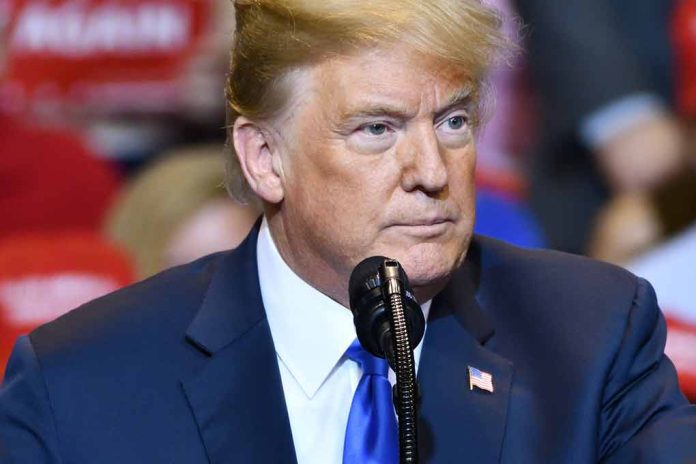
Donald Trump’s proposal to send American citizens to El Salvador’s super prison raises profound legal and ethical questions that cut to the heart of the debate over crime and justice.
Key Takeaways
- El Salvador’s mega-prison, CECOT, plays a central role in President Bukele’s anti-crime strategy and houses inmates without recreation or education opportunities.
- The U.S. administration has invoked the 1798 Alien Enemies Act for deporting citizens, a decision met with legal resistance and concern over constitutional rights.
- Human rights organizations have accused El Salvador of violations within its prison system, including torturous conditions and inadequate medical care.
- Critics and legal experts question the legality and ethics of sending U.S. citizens to foreign prisons without due process.
Trump’s Proposal and the Super Prison
Donald Trump proposed deporting American citizens to El Salvador’s mega-prison, CECOT, a facility integral to President Nayib Bukele’s crime reduction efforts. CECOT accommodates up to 40,000 inmates in austere conditions without visitation or educational facilities.
The measure seeks to deter gang affiliations linked to groups like Venezuela’s Tren de Aragua. However, many argue that this move risks undermining due process. Trump’s administration supports sending citizens to CECOT, firmly highlighted by invoking the 1798 Alien Enemies Act, even as federal courts temporarily halt its implementation.
Legal Battles and Public Reaction
A federal judge called the government’s actions in a recent deportation case “wholly lawless,” stopping the use of the Alien Enemies Act. This decision centers around the wrongful deportation of Kilmar Abrego Garcia to El Salvador, who had legal deportation protection. Critics argue the plan violates citizens’ rights and involve oversight errors.
“There are lots of things they could have done, But each one of those is in a court and gives him the opportunity to defend himself. And they didn’t do any of them. They just put him on an airplane,” said immigration lawyer Simon Sandoval-Moshenberg.
Legal experts foresee significant challenges for the administration if they pursue deporting American citizens, as evidenced by the outcry from advocacy groups and human rights organizations. Concerns remain about the transparency of such agreements, including a $6 million payment to El Salvador’s government.
Ethical Concerns and International Scrutiny
The notion of sending U.S. citizens to CECOT has evoked condemnation from various quarters, including former critics like Jon Favreau and advocacy organizations. These voices argue that using El Salvador’s prison undermines due process and fosters wrongful dehumanization tactics against alleged offenders.
This contentious policy opens a broader debate about justice and constitutional rights, relaying how American values and ethics clash with fierce crime control efforts.
Sources:
- https://www.npr.org/2025/03/17/g-s1-54206/el-salvador-mega-prison-cecot
- https://www.newsweek.com/donald-trump-sending-americans-el-salvador-prison-2056122
- https://www.cbsnews.com/news/trump-administrative-error-deporting-man-el-salvador-prison/
- https://apnews.com/article/el-salvador-deportation-maryland-man-trump-error-818a0fa1218de714448edcb5be1f7347



